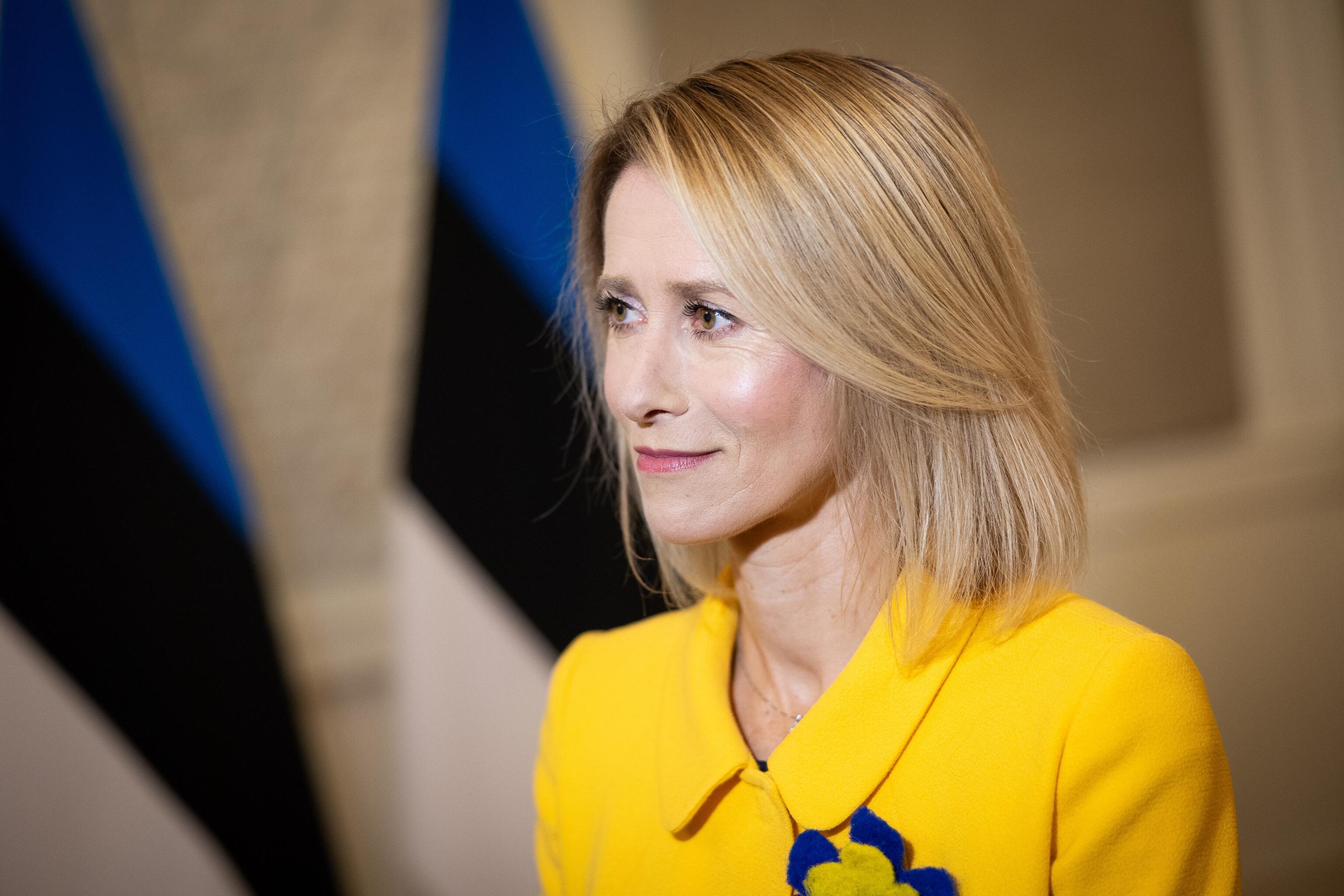Main image: Kaja Kallas by Siim Lõvi / ERR
The High Representative of the European Union for Foreign Affairs and Security Policy, Kaya Kallas, believes that Russia has no right to influence decisions on security guarantees for Ukraine.
She stated this in an interview with the Estonian public broadcaster ERR.
When asked to comment on Moscow’s statement that the Kremlin would not agree to the deployment of European forces in Ukraine as part of security guarantees, Kallas responded: “That is not their business.”
“When I hear the position that European security guarantees for Ukraine should be discussed with Russia, we would be giving Russia even more influence than it has now. It is absolutely not for them to decide, but this again shows that they are not serious about achieving peace,” Kallas said.
She noted that Europe and the U.S. are making every effort to enable President of Ukraine Volodymyr Zelensky to sit at the negotiating table with Putin, while emphasizing that the Kremlin leader cannot be trusted.
“As we know, Putin plays games, and he really cannot be trusted. It is now very clear that Russia does not actually want to sit at the negotiating table or engage in any substantive discussions,” said the EU chief diplomat.
Kallas also cited Russian Foreign Minister Sergey Lavrov’s recent statement that a peace treaty will only be signed with a legitimate representative of Ukraine as another clear example of this.
“In response, one can say that Putin has also not gone through elections; at least in Russia, there have been no real elections in the past 25 years. He is not a legitimate leader, and it would be wrong for him to negotiate a peace agreement on behalf of Russia,” Kallas said.
She stressed that the EU, together with the U.S., has the tools to pressure Russia to end the war.
“There are sanctions for this. If we apply them in a way that cannot be circumvented, and if major powers—the Americans and Europeans—apply them together, then it will be possible to pressure Russia to the point that it will also want peace. Right now, they are not yet at this stage,” Kallas said.
Commenting on Russia’s narratives about so-called root causes of the war, she emphasized that under international law, there are only two conditions under which a country may use force: “One is self-defense, and the other is when there is a UN Security Council resolution on the matter. There are no ‘root causes’ for attacking another country, and if we start recognizing them as such, borders around the world would effectively be open, which is not the world we want. These are Russian narratives that cannot be agreed with.”
Europe must remain united, she added: “We were united.”
“In fact, this was a very good example when European leaders were together with President Zelensky in Washington. The picture we saw in Washington was completely different from what we saw when President Zelensky was there alone. The discussions we are having concern security guarantees, about how to ensure that if a peace agreement is really concluded, Russia will not go further and start again after a pause. We still need to convince our transatlantic partners about this,” Kallas said.
She concluded that
“Russia has so far not adhered to any treaty or commitment, and for this reason, we must do everything so that they have no means to wage this war.”





















